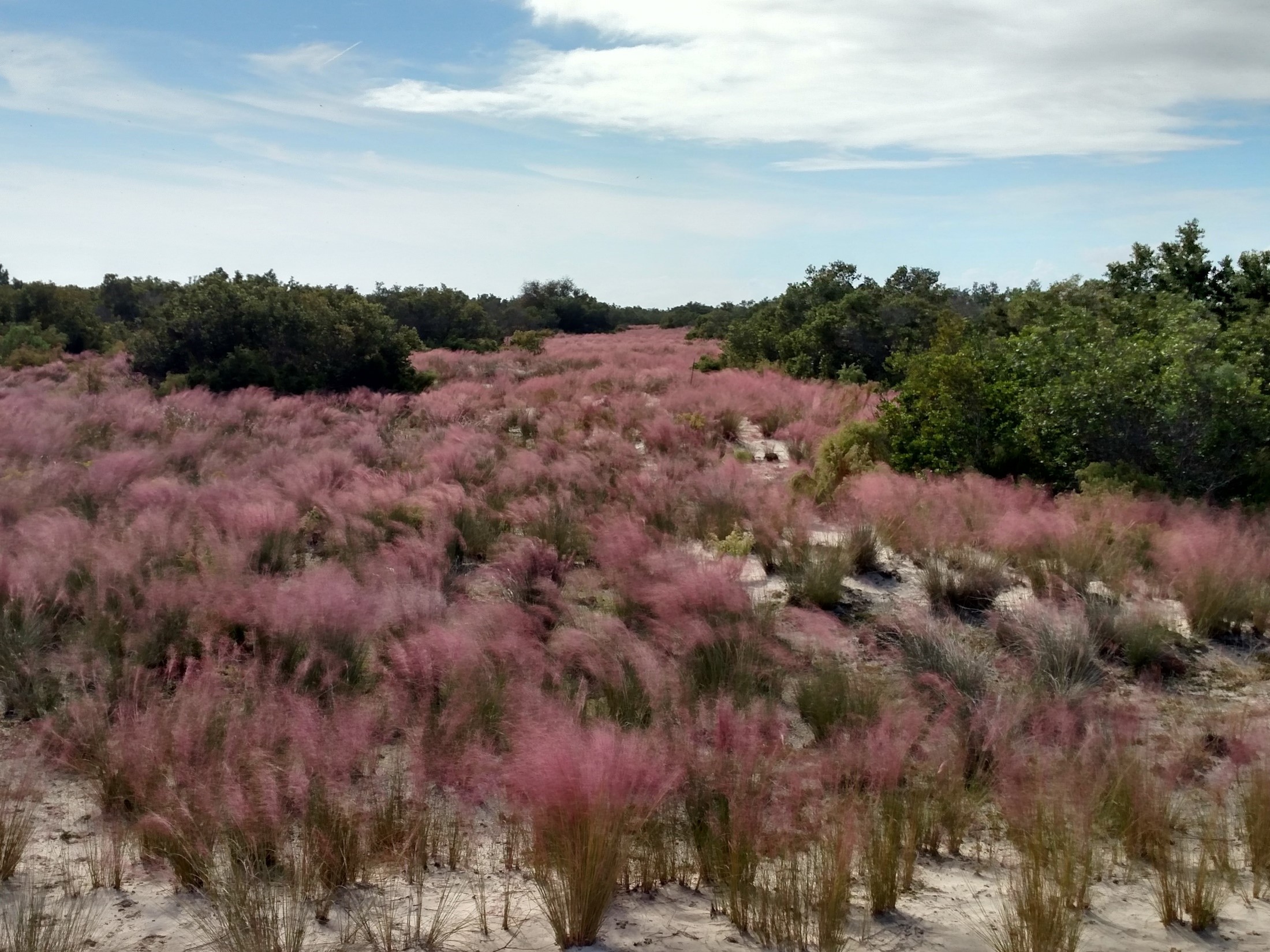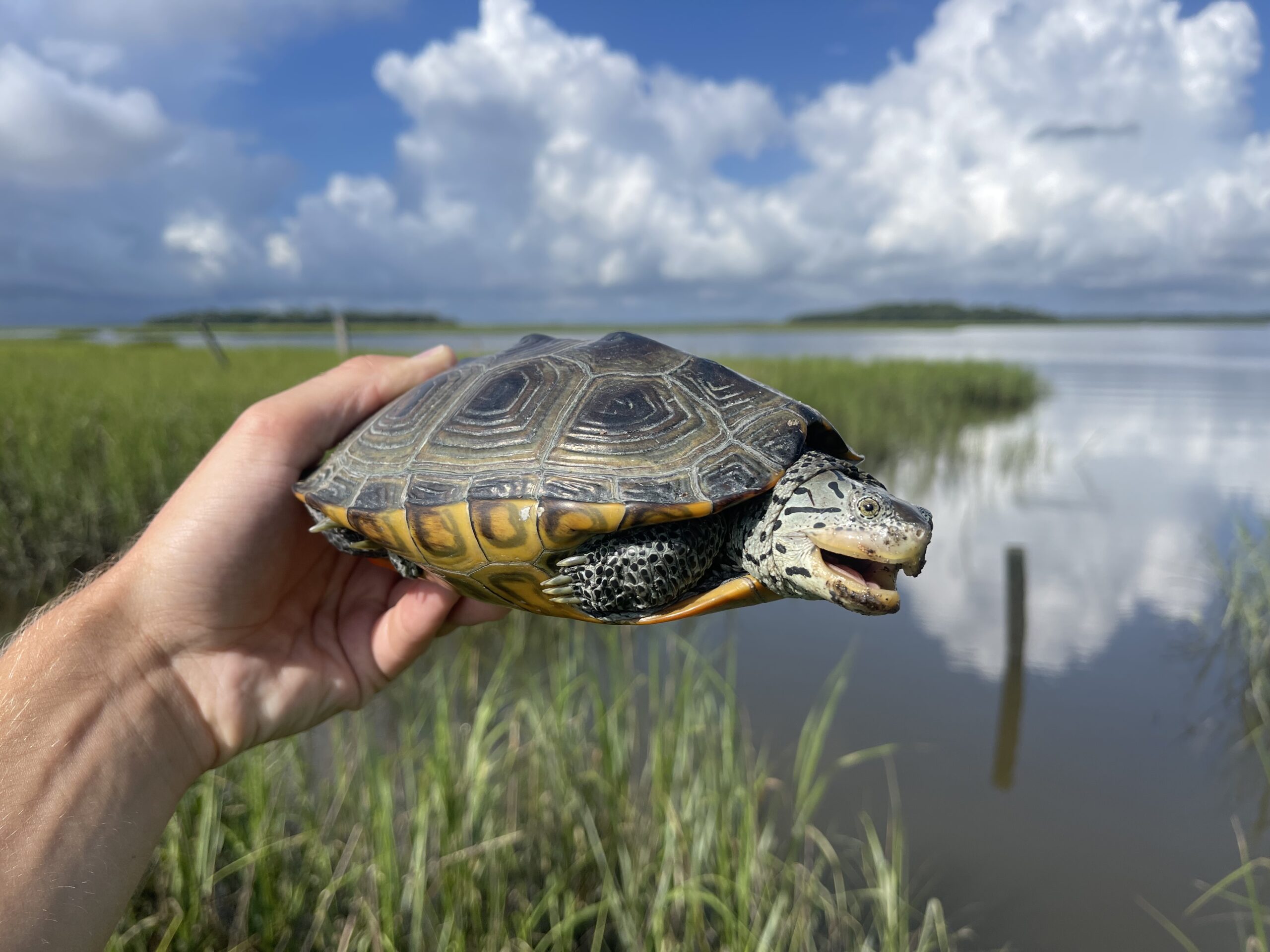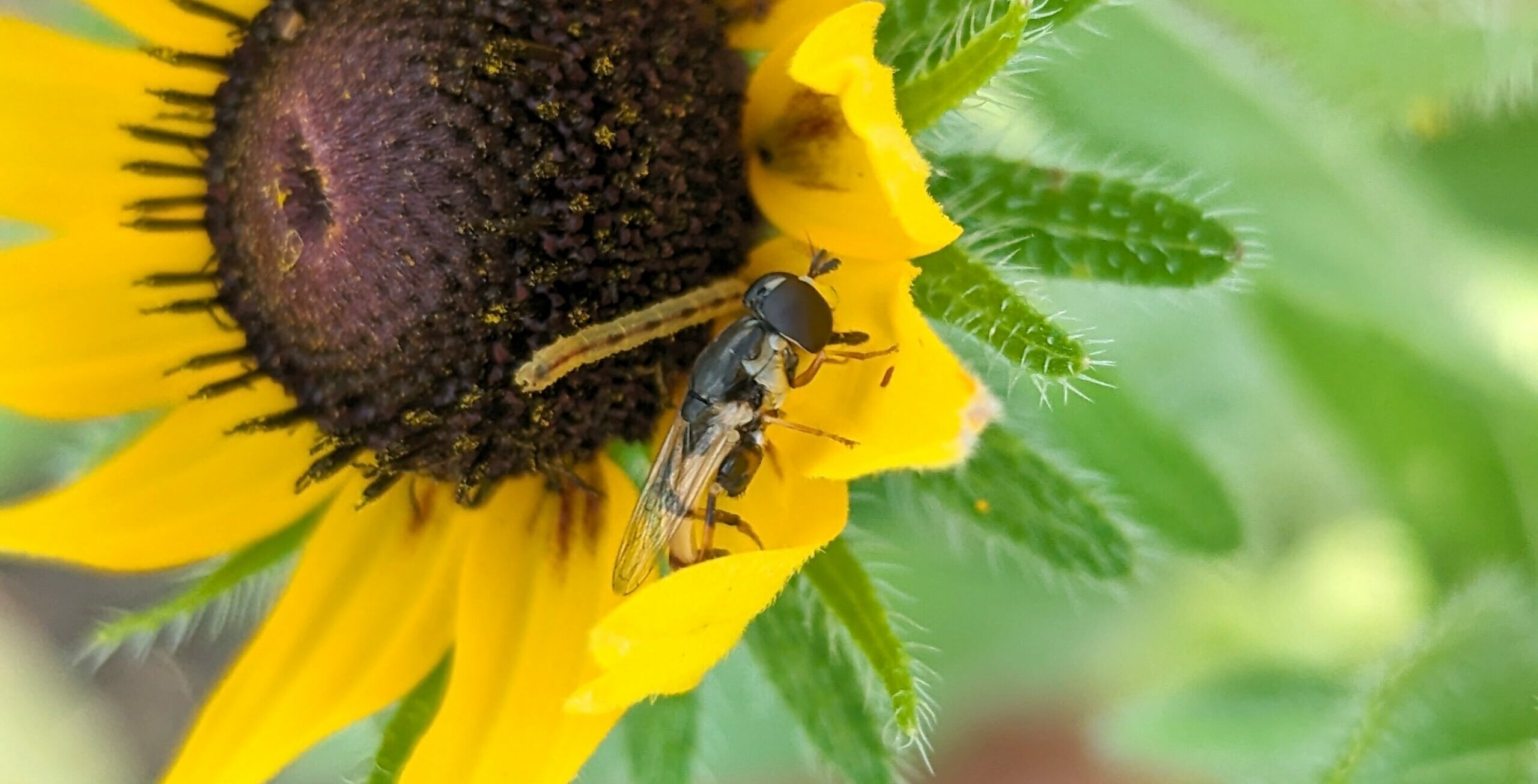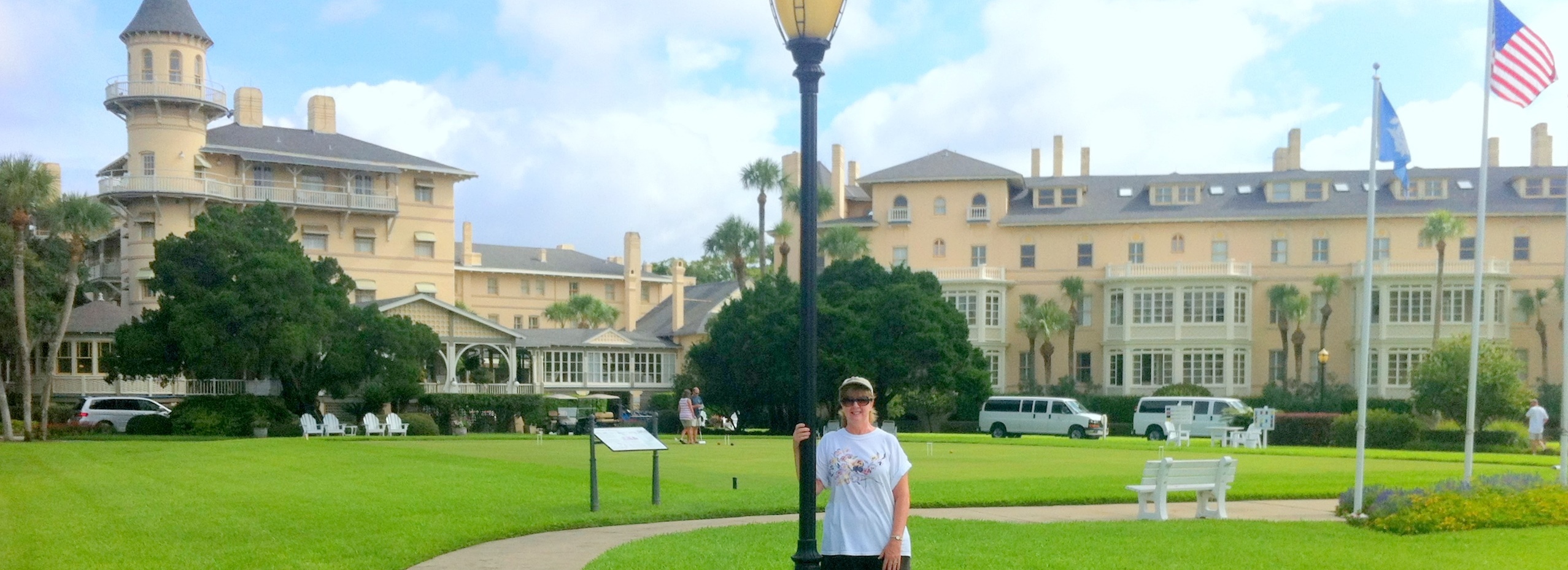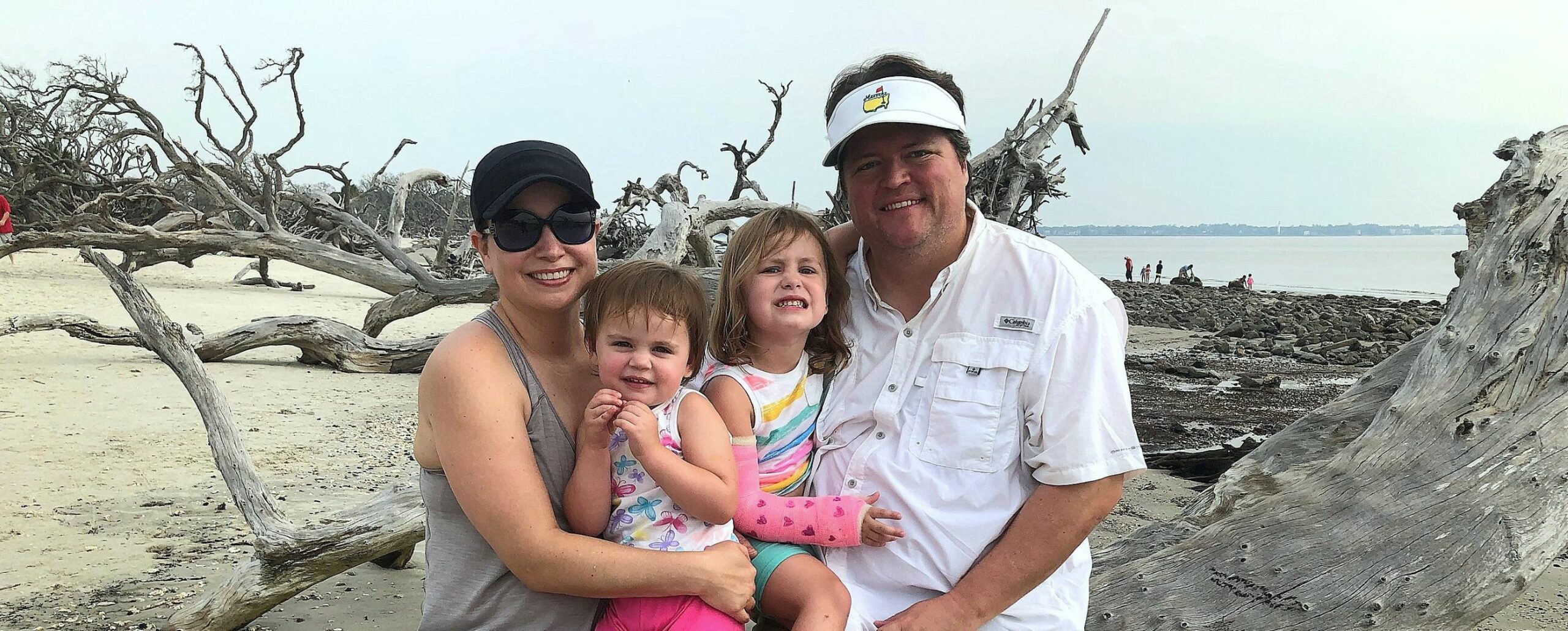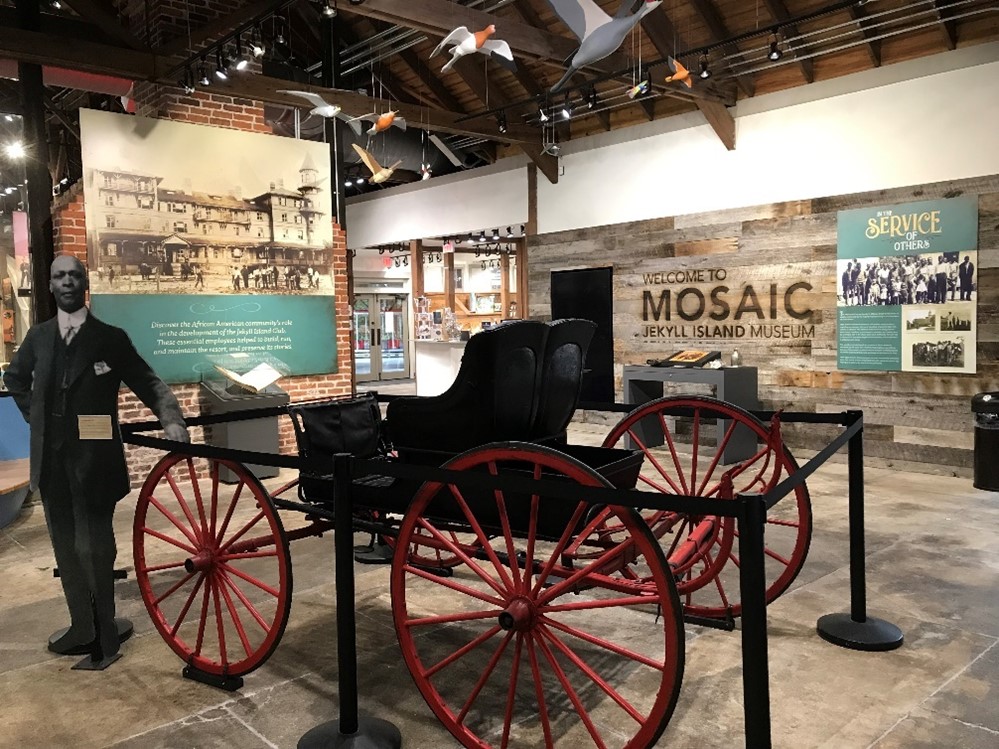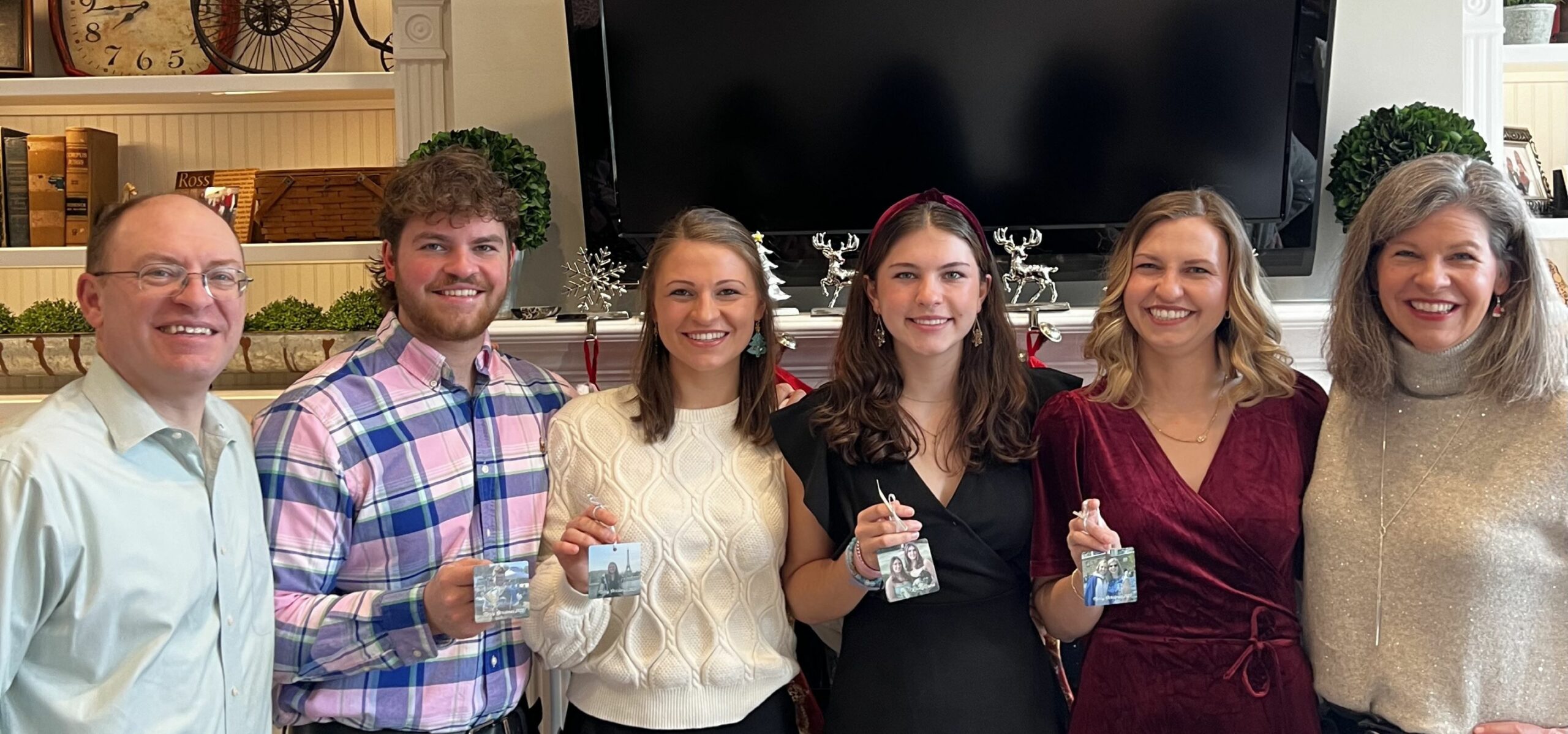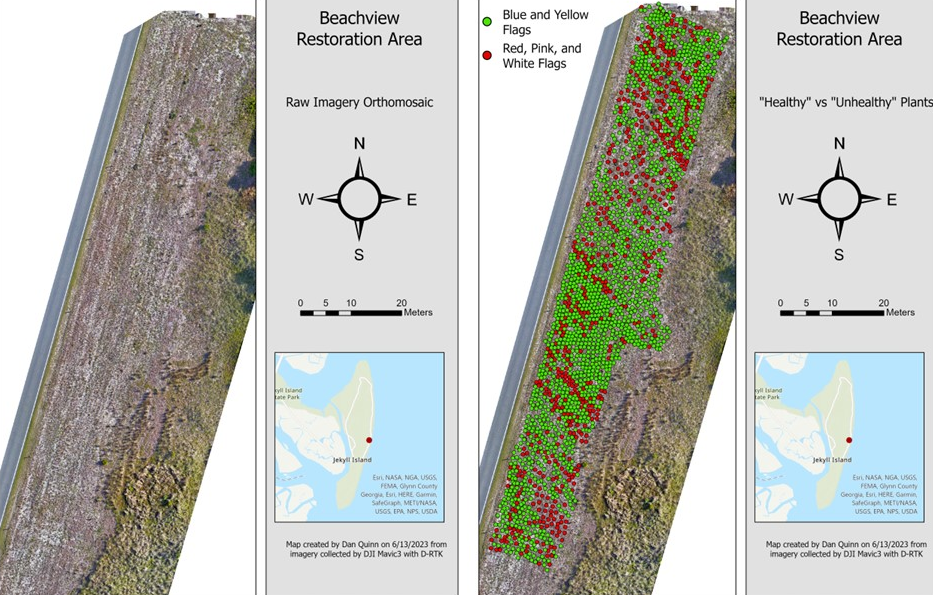by Joseph Colbert, JIA Wildlife Biologist & Yank Moore, JIA Director of Conservation
The Jekyll Island Authority (JIA) Conservation team is very excited to share that by the end of 2024, through a partnership with Birds Georgia (formerly Georgia Audubon), Jekyll Island’s restored Muhly Grass Meadows is expanding!
Beginning in 2022, Birds Georgia planted 7.4 acres of Muhly Grass Meadows between Tortuga Jacks and the Holiday Inn Resort (see blue section of map). By the end of 2024, additional plugs will be planted adjacent to the Holiday Inn Resort, just east of the bike path (see orange section of map). During the second leg of the restoration project, 4.2 acres turf grass will be replaced with 24,000 muhly grass plugs and other flowering plants, benefitting a wide variety of wildlife species. This will complete the grassland restoration project for this section of the island, allowing the conservation team to focus their attention on natural areas. Funding for the natural areas phase will be provided through the Jekyll Island Foundation’s ongoing Acres and Acres of Muhly Grass campaign.
Muhly Grass Meadows occur naturally in dunes just beyond the beach and are considered a globally imperiled plant community, declining significantly across their range in the past several decades. This is especially true on Jekyll where there remains less than one acre of naturally occurring Muhly Grass Meadow. These meadows are threatened by increased coastal flooding events and succession or transition into less desirable habitats, making restoration an urgent and timely activity for JIA to address.
This recent restoration project, implemented through Birds Georgia, has been very successful so far, but this is only the beginning of an expansive, island-wide restoration campaign focused on this habitat type. In the years to come, using the funds from the Acres and Acres of Muhly campaign, the conservation team will continue expanding Muhly Grass Meadows in naturally occurring dunes across the island where they would have been found historically. Forty acres of space on the southern section of Jekyll Island has been identified as a high priority to rescue, restore, and establish Muhly Grass Meadows. With your help and financial support, the Conservation team will turn this dream into a reality!
We’re very grateful for funding support from donors like you, that will make this restoration campaign a major conservation success story by rescuing this beautiful and productive globally imperiled habitat from going extinct on Jekyll Island.
